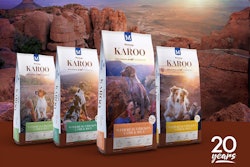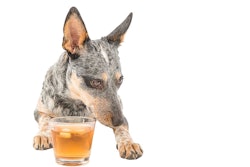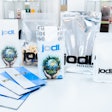
Pet food ingredient supplier BENEO surveyed 2,500 pet owners in Germany, the UK, the US, China and Brazil about their attitudes towards health and wellness trends in pet food and functional pet food ingredients.
Overall, respondents stated that “quality” most influenced their pet product purchases. Forty percent of survey participants worldwide selected that response. Price and promotions were the second most frequent top influence on pet food, treat and other pet product purchases, with 28%. Familiarity with the brand or product most influenced 14% of pet owners.
A large majority, 81%, of pet owners worldwide ‘completely’ or ‘somewhat’ agreed with the statement that they want the same quality standards for their pets’ foods as their own.
Labeling a pet food as “made with natural ingredients” influenced 52% of respondents’ likelihood of purchasing that product, according to survey responses.
The digestive health of their pet was reported as ‘extremely’ or ‘very’ important to 83% of pet survey respondents. Pet owners may consider pet food to be a primary means to address gut health. Among survey participants, 58% of pet owners reported always or frequently choosing foods to improve their pets’ digestion, compared to 9% who reported using medication for such issues.
Pet owners responded that they most prefer labeling messages that refer to “supporting a healthy and balanced digestive system” and “promoting digestive health naturally.”
5 tips for dog, cat gut health via pet food ingredients
Pet food ingredients can influence the gut health of dogs and cats. During Petfood Forum China 2019, Virgil Meallet, DVM, Asia technical director for Olmix Group, shared advice on how to formulate pet food to protect and boost the digestive system, including the following five topics.
1. Hypoallergenic diets for identifying pet gut problems
Hypoallergenic diets become particularly beneficial when used as elimination diets for pets with gut health problems, according to Meallet. With these hypoallergenic pet food formulations, veterinarians and owners can diagnosis and manage food hypersensitivity in dogs and cats.
When to consider a hypoallergenic pet food:
- when a pet appears to be allergic to multiple ingredients
- when an otherwise complicated dietary history makes it difficult to identify a novel protein
- when a patient has severe IBD
2. Fiber types in digestive health pet foods
Soluble fibers may help reduce symptoms of some gastrointestinal diseases. In general, Meallet advocates the use soluble, or fermentable, fiber in preference to insoluble, non-fermentable fiber.
3. Beta-glucans in dog food ingredients
Beta-glucans are water-soluble plant fibers made up of chains of up to 2,000 units of the simple sugar glucose.
Among pet food ingredients, corn, rice, barley, wheat and oat contain beta-glucans, as does baker's yeast. Purified bet-glucans from yeast or oyster mushrooms enhanced immune responses in dogs in experiments, according to Meallet.
4. Fat and vitamin considerations in pet gut health
Too much fat in the diet can delay gastric emptying in dogs, according to Meallet. High-fat dog foods may contribute to diarrhea. Pet food formulators need to pay close attention to vitamin levels in gut health diets. Gastrointestinal diseases can cause the loss of water-soluble vitamins in diarrhea. Similarly, fat-soluble vitamins can be lost in overly fatty feces, a condition known as steatorrhea. For example, researchers have documented magnesium deficiency in Yorkshire Terriers with severe inflammatory bowel disease and lymphangiectasia.
5. Probiotics for pet food from marine algae
Probiotics may help dogs and cats with inflammatory bowel disease and should be studied further, according to Meallet.
Petfood Forum events worldwide
Learn more about natural pet food ingredients at Petfood Forum 2020. Petfood Forum conferences and exhibitions serve the global pet food manufacturing industry. The current portfolio of shows include Petfood Forum, Petfood Essentials, Petfood Forum Asia, Petfood Forum China and Petfood Forum Europe. Petfood Forum events deliver opportunities to learn the latest research and innovative information on pet nutrition, global pet food market growth, pet food safety, processing, packaging and much more - all from leading, recognized pet food industry experts.

















